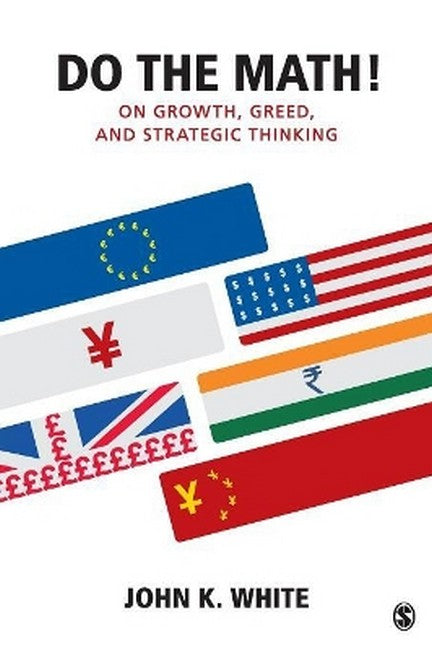John K. White (Ph.D.) has a B.Sc. from the University of Waterloo, Canada, and a Ph.D. from University College, Dublin in Applied Physics. Currently, he is a lecturer and Research Fellow at University College, Dublin. However, over the past 25 years, he has also worked as Project Manager and Technical Writer for Sun Microsystems, as a Computational Analysis/Technical Writer for Berminghammer Foundation, Consultant for Interactive Image Technologies for ScotiaBank, and Programmer/Computational analyst for the Ontario Government. He has a wide range of interests and is also active in promoting science and physics in secondary schools. He has published widely in a range of areas in academic journals, has contributed chapters to edited volumes, and has authored a number of technical publications.
Request Academic Copy
Please copy the ISBN for submitting review copy form
Description
Chapter 1. The doubling game: From Thomas Malthus to Bernie Madoff Chapter 2. She told two friends and they told two friends and they told two friends and... Chapter 3. The mathematics of change: A new world model Chapter 4. Fairness and uncertainty: Who watches the watchers? Chapter 5. Statistics made simple: The science of weighting Chapter 6. A case for correlation: Sampling and inference from Shakespeare to death row to sports competitiveness Chapter 7. Counting and computers: From Boole to Google and back Chapter 8. Who to believe? Numbers and the art of deception Chapter 9. Two kinds of people: Those who divide and those who don't Chapter 10. How to get along: Be nice, clear your ice Chapter 11. Cooperation: The art and science of agreement Chapter 12. The roots of economic disaster: Making money from money
"This book is easy to understand and very readable. I very much enjoyed the author's ability to use fables to explain mathematical concepts, he does manage to capture the reader's attention right from the beginning." -- Guillermo Wated "I personally love the unabashed connection to morality, what you should do versus what you can do, which rarely shows up in books today." -- Stephen N. Kitzis "The key strength is in the description of the problems that greed has created, and the impact that has on our physical and social environment. Equipping students with the knowledge to look at statistical reports on the economy, for example, and to be skeptical and know that there is more to the story in the numbers is very valuable, and could help make better consumers." -- Nancy Sonleitner "The key strengths of the text are the numerous examples and stories related to connecting political, economic, cultural, scientific, and mathematical concepts. Some stories are classic tales, some are current events, and others are hypothetical situations that all make the reader think and provide excellent visual matter." -- Terry F. Pettijohn II "The author does a good job demystifying some pretty sophisticated mathematical concepts through the use of engaging and entertaining examples." -- John Bohte "Students...benefit from an understanding of the role of statistical analysis, probability and calculus in governmental systems, historical trending and political prediction. The text encourages readers to consider the larger implications of fundamental mathematical concepts." -- Steve B. Lem

